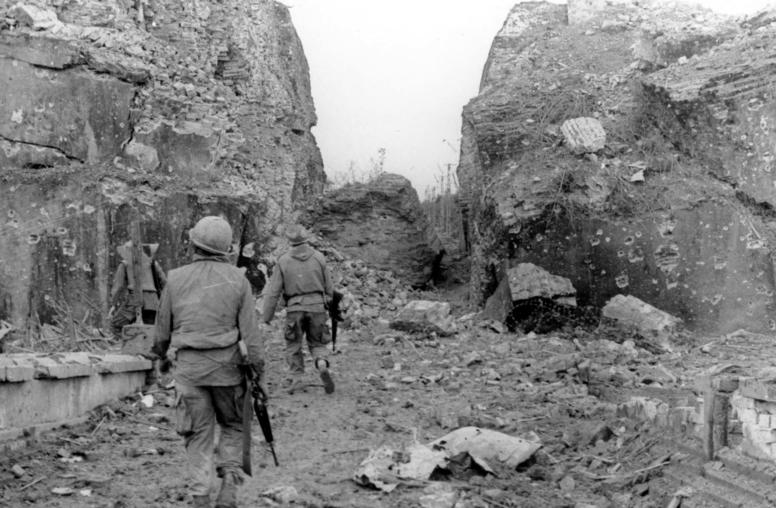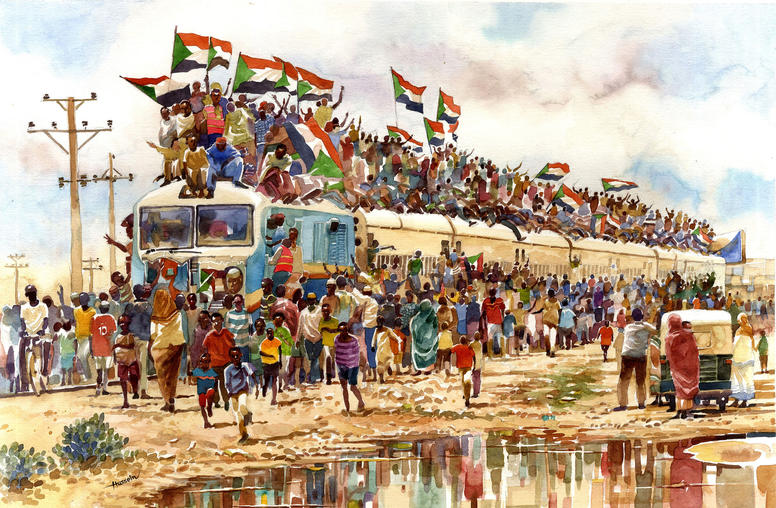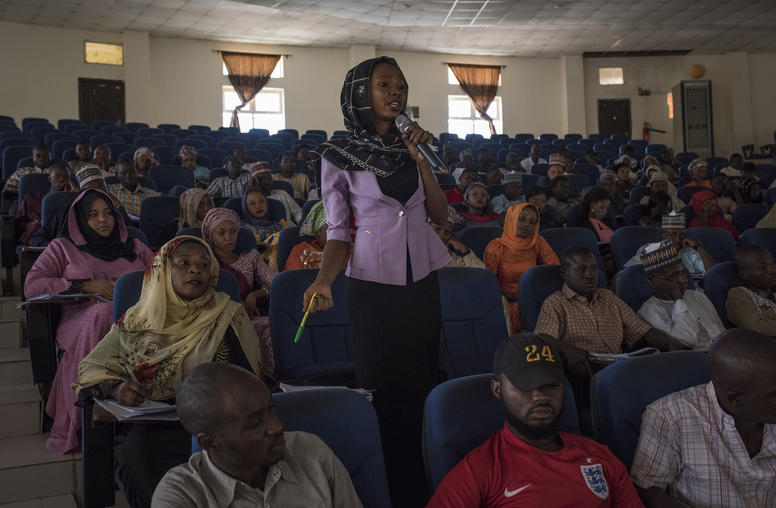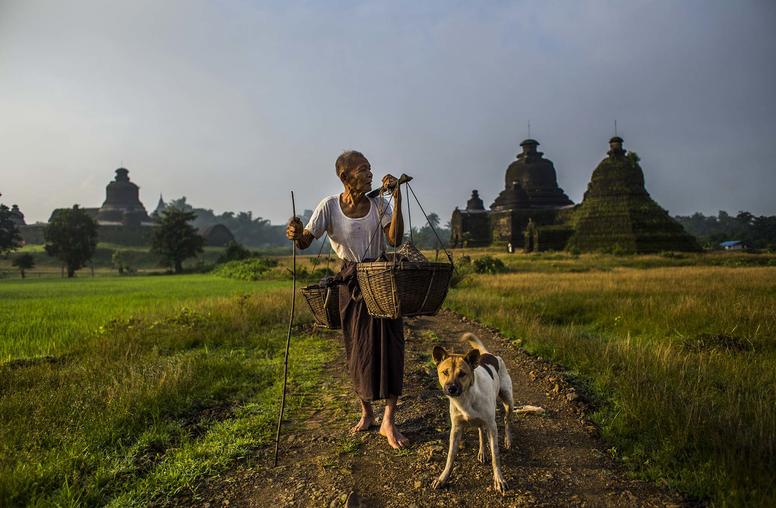Tuesday, April 23, 2024
Second Interagency SENSE Simulation held in Washington, DC
On May 5-7, 2009 USIP conducted a SENSE simulation for Interagency participants at the Dupont Hotel in Washington, D.C. in partnership with the Institute for Defense Analyses (IDA) and George Mason’s Peace Operations Policy Program. Forty-three individuals received the training.
USIP Trains the Youth Members of Pakistan’s Political Parties and the Pakistani Youth Parliament to Resolve Conflicts Peacefully
On December 16th, at the request of the Pakistani Institute of Legislative Development and Transparency (PILDAT), ETC/I Senior Program Officer Nina Sughrue conducted a one-day conflict management session for 18 Pakistani parliamentarians, eight members of the parliamentary staff, 17 representatives of the political parties’ youth wings, nine members of the youth parliament, 10 members of the press, and six politically active civil society leaders in Islamabad.
Discussing Training Objectives for Kosovo’s New Ministry of Foreign Affairs
ETC/I Deputy Director Ted Feifer and Senior Program Officer Noor Kirdar met with six senior officials of Kosovo’s new Ministry of Foreign Affairs on September 29, 2009. The group was visiting the United States under the Department of State’s International Visitor Leadership Program to explore the role and work of a ministry of foreign affairs.
Navigating Liberia's Justice Landscape
In December 2009, Deborah Isser and Tim Luccaro traveled to Monrovia, Liberia to present the findings of the recent USIP Peaceworks, "Looking for Justice: Liberian Experiences with and Perceptions of Local Justice Options," to senior government officials, and to facilitate a meeting between Liberia's Legal Working Group and the nation's traditional leaders.
Youth and Students Work to Promote Security and Rule of Law in Nepal
USIP has been working in Nepal since 2006 to strengthen security and the rule of law through dialogue. As part of programming funded by the State Department’s Bureau of International Narcotics and Law Enforcement Affairs (INL) and USIP, USIP brought together members of youth groups, political parties, civil society and the Nepal Police in December 2009 for a dialogue session in the volatile city of Biratnagar. USIP national project adviser Shobhakar Budhathoki reports on the outcome.
Voices from Kosovo
Eleven years ago, Kosovo was a war zone on the world’s front pages, an ethnic and nationalistic cauldron in which both national and international laws seemed an utter irrelevance. When the guns at last fell silent, Colette Rausch worked for several years in Kosovo as part of the international community’s attempt to construct the rule of law amid the rubble. Last fall, she returned to find out whether, from the perspective of the people of Kosovo, the international community's efforts had be...

A Vietnam Veteran’s Fight—for Dignity and Peace
In 1967, America was racing the Soviet Union into space, debating war in Vietnam and dancing to Aretha Franklin’s “Respect.” John Lancaster graduated that spring from the University of Notre Dame. Having studied on a Navy ROTC scholarship, he took a commission in the Marine Corps. After several more months of training, Second Lieutenant Lancaster landed at Da Nang airport amid the Vietnam War’s bloodiest battle: the 1968 Tet Offensive by the North Vietnamese and Viet Cong forces.

How Art Helped Propel Sudan’s Revolution
During Sudan’s 2019 revolution—as people mobilized across the country with tactics including sit-ins, marches, boycotts, and strikes—artists helped capture the country’s discontent and solidify protesters’ resolve. In particular, artists became an integral part of the months-long sit-in at the military headquarters in Khartoum, which was known as the heart of the revolution until it was violently dispersed by paramilitary forces on June 3, 2019. This immense expression of creativity was both a result of loosening restrictions on freedom of expression and, at the same time, a catalyst for further change.

Nigeria: Police in Jos Adapt to COVID-Driven Rise in Sexual Violence
Ten months since the coronavirus first emerged, communities around the world still face stay-at-home orders, school closures, and travel restrictions. These policies have led to increased sexual and gender-based violence. While the U.N. secretary-general and heads of state have paid unprecedented attention to this issue, translating political rhetoric into action has proven more difficult. As the pandemic drags on, governments, security actors, and civil society need to rethink how to protect women and girls during lockdowns. While the situation is dire, an opportunity does exist. In Nigeria, where massive protests against police brutality broke out in October, civil society and police are adapting their efforts to address both gender-based violence and the pandemic.

Visions for Peace in Burma
Burma has faced various ethnic conflicts since shortly after its independence in 1948. In that time, five different peace efforts have failed, leaving Burma in what constitutes the world’s longest running civil war. However, since the country’s November 8 elections, there has been a flurry of meetings between ethnic-armed organizations and the military, known as the Tatmadaw. These unexpected talks are the first signs of progress toward a resolution of the seemingly intractable war—that is, if the sides can learn from the past and create a fresh, inclusive renewal of the peace process that draws on the country’s diverse voices advocating for peace.
